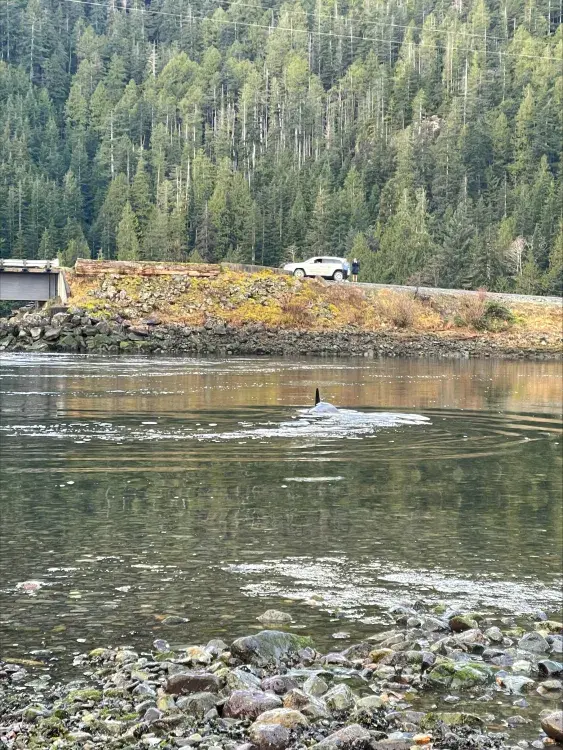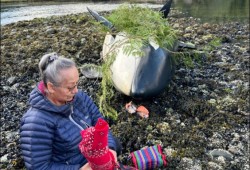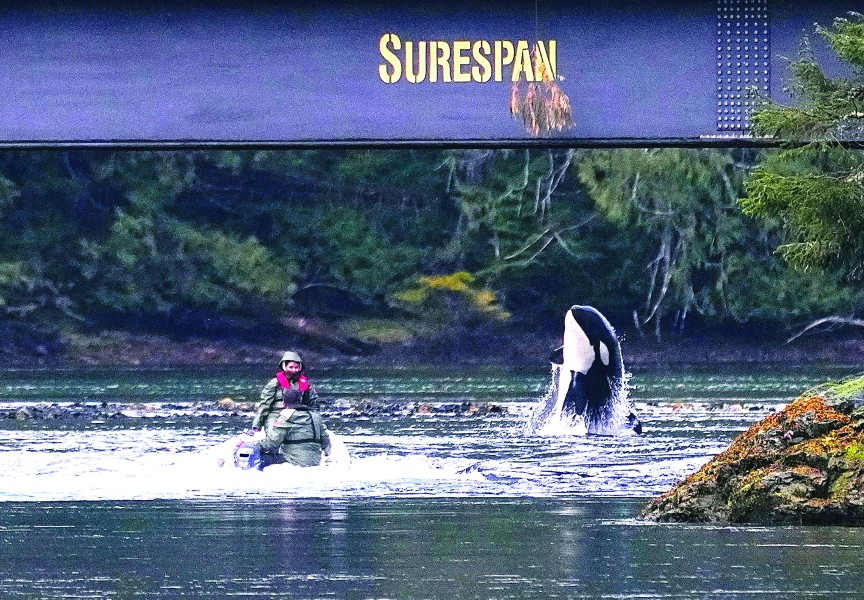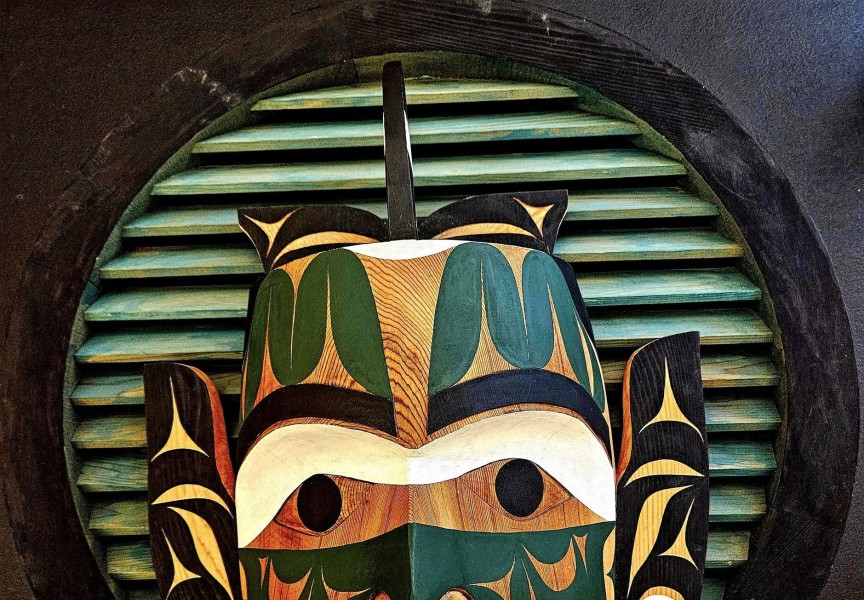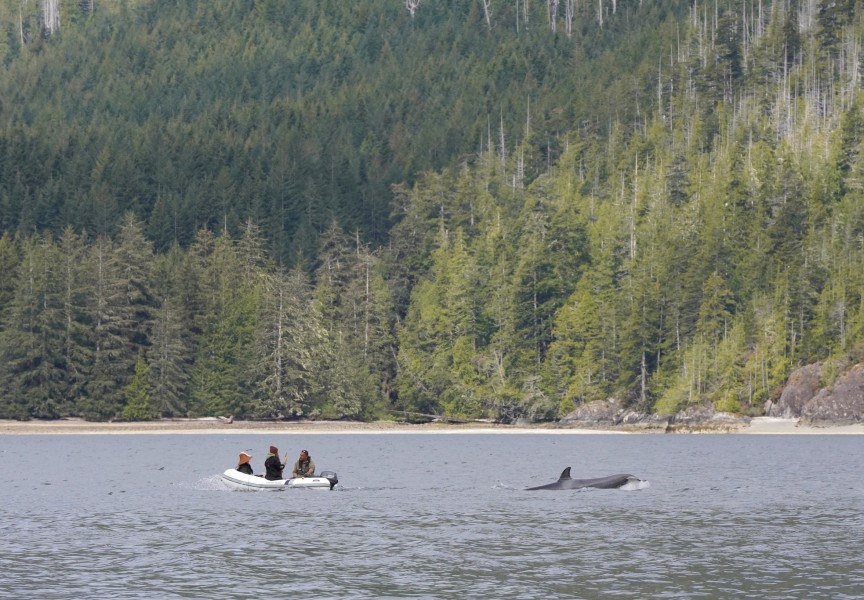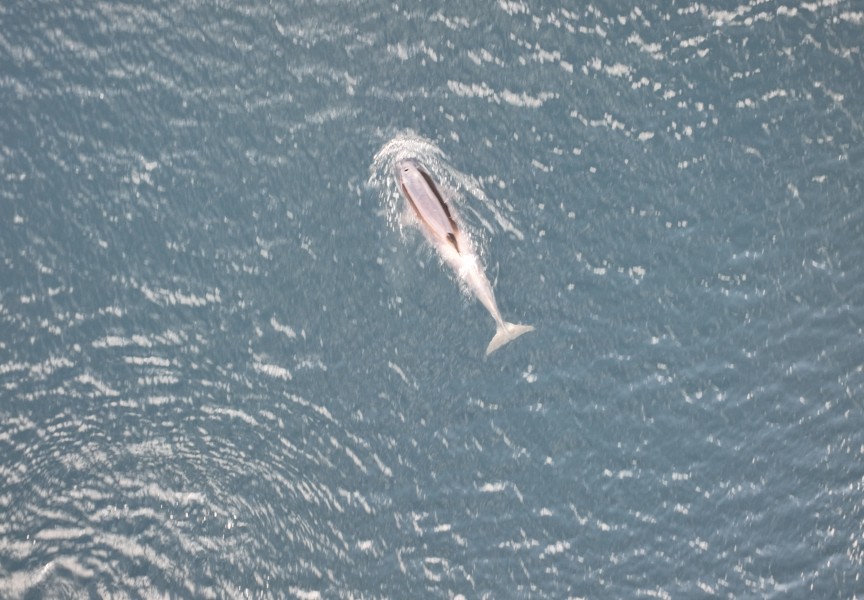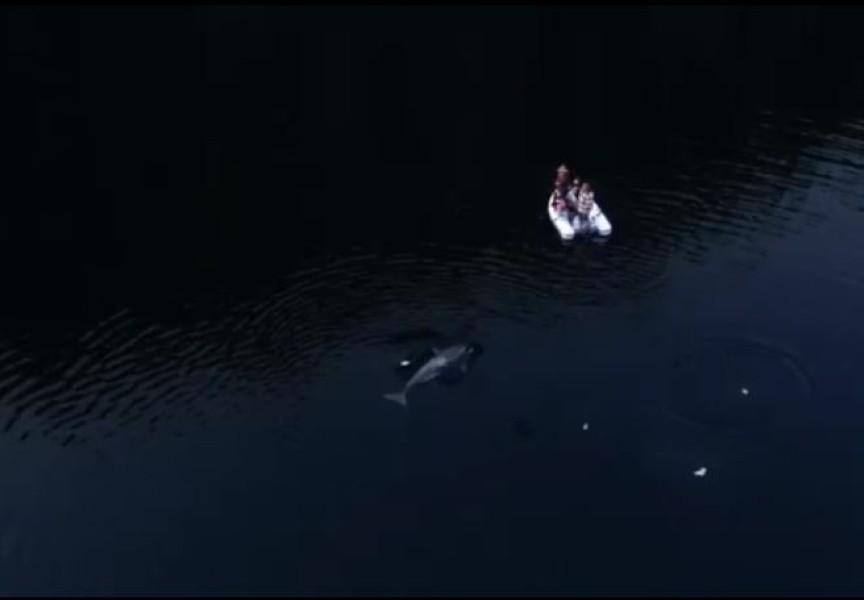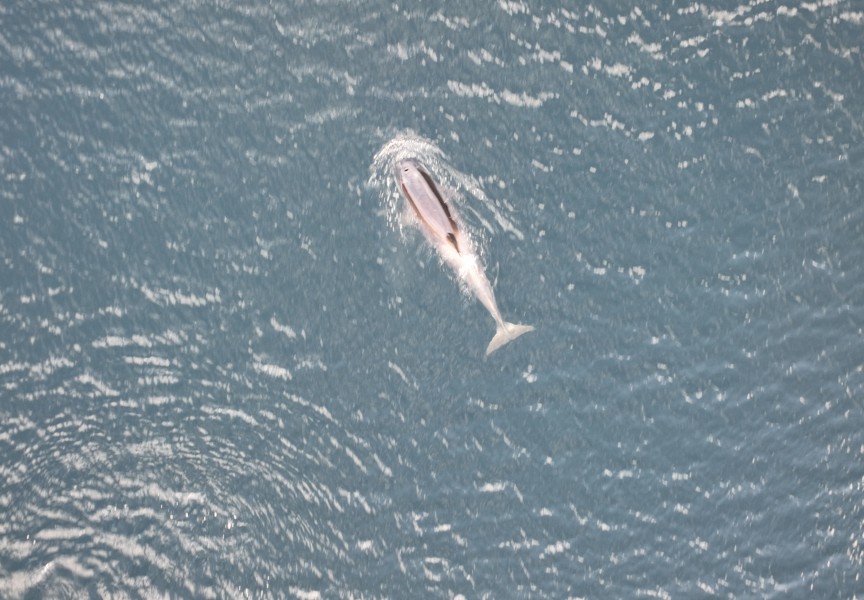A young killer whale remains stranded in the shallow water of a lagoon near Zeballos three days after its mother died at the site, but time is running out for those at the scene to find a solution for the trapped calf.
The mother was first spotted early in the morning on Saturday, March 23 in Little Espinosa Inlet, just down the road from the Ehattesaht First Nation’s community of Ehatis. The female adult struggled as she was stuck on the shore. Dozens of locals came to keep her wet and try to move her over, but sadly, she passed after 10 a.m.
“Our community responded and everyone was working to save her, we weren’t able to move her enough,” stated a release from Ehattesaht Chief Councillor Simon John and the First Nation’s elected council.
According to those at the scene, the mother had a dead seal in her mouth. She has been identified as a transient, or Bigg’s killer whale, which subsist on marine mammals.
“It is unclear whether the dead whale was hunting and became stranded as the tide receded or had an underlying health condition that caused her death,” stated an update from Fisheries and Oceans Canada, adding that a necropsy revealed the female was pregnant. “The dead whale had an unborn female fetus.”
“The lagoon has a narrow entranceway and the water rushes in and out,” described John in the statement from chief and council. “It has always been a hunting ground for the killer whales looking for seals and I guess she went too far up the beach at the exact wrong time. It is something we will want fixed.”
Meanwhile, the accompanying calf survived, swimming in the shallow water of the lagoon as the mother struggled during her final hours. The Ehattesaht have been working night and day with the neighbouring Nuchatlaht Tribe and visiting personnel from Fisheries and Oceans to find a solution for the young one, who the First Nation has named kʷiisaḥiʔis, which means ‘Brave Little Hunter’. kʷiisaḥiʔis is identified as being one year and nine months old, while the late mother was previously identified to be born in 2009.
According to reports from the scene, shortly after the mother’s passing Nuchatlaht members ventured out in the ocean to locate a nearby pod. During a period of high tide on Monday vessels played a recording of a nearby pod of orcas to lure the baby out of the lagoon’s shallow water, but this was unsuccessful.
“The responders on site attempted a playback of recorded pod members’ calls,” stated an update from DFO. “This is a method that has had some success in other incidents in the past.”
On Tuesday efforts continued. The Ehattesaht closed the nearby road and the waterway to marine traffic to eliminate disturbances to the young orca and those working to save the animal. The First Nation’s forestry operations were also suspended on Tuesday, and its helicopter was used to try and locate the young whale’s pod.
“The Fair Harbour road is now closed on either side of the lagoon at Little Espinosa and local traffic will be let though with a no-stopping order,” wrote Rod Visser in an email from Ehattesaht. “It is important that there are no disturbances for the little one or distractions to the efforts. They will be working to try and coax the calf out into deeper water and closer to its pod who, everyone is hopeful, is nearby.”
“We know this mother often travelled with her mother and siblings,” stated an update from the Marine Education and Research Society. “There are efforts now to try to ensure the calf leaves the lagoon and reunites with other family members.”
Fisheries officers from the DFO’s Port Hardy detachment who are trained in marine mammal rescues have brought “re-floatation pontoons and specialized equipment,” stated the federal department.
“[Conservation and Protection] fishery officers will be on site on a rotating basis to provide ongoing support and have other platforms on standby as necessary,” noted the DFO. “The tide window is closing over the next few days, which may not allow for on-water efforts during this time.”
Killer whales, know as kakawin in Nuu-chah-nulth culture, hold a sacred importance among First Nations from Vancouver Island’s west coast. After the mother’s passing Ehattesaht members held a ceremony with cedar branches.
In the Ehattesaht’s press release John noted that this event has allowed the First Nation to focus on the matter at hand, reconnect with each other, and “try to do the best of our teachings and what the experts have to offer.”
“In our stories the killer whale came onto land and transformed into the wolf and then the wolf transformed into man,” said John in the release. “These are events that reawaken our people and our connection to the land, water and the animals. I am not sure, but sometimes in the sad events we gather strength. I think that is important.”

